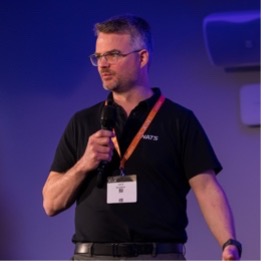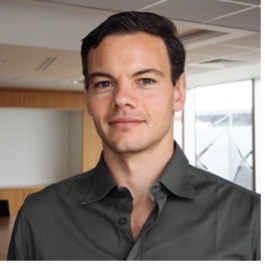Systems Engineering Industrial Advisory Board
(Last update: October 2023)
Terms of Reference
The primary role of the Industry Advisory Board (IAB) at the School of Engineering and Materials Science (SEMS) is to facilitate the exchange of ideas between the board members, the academic staff and the students with the goal to maximise employability, research opportunities, and to enhance the School’s position as a centre of excellence for Systems Engineering.
The IAB members represent a range of sectors and include the current chair of the UK Chapter of the International Council on Systems Engineering (INCOSE). The Board meets biannually and includes representation from local and global technology companies, public sector, and innovative SMEs.
The main activities of IAB typically include:
- To participate in twice-yearly IAB meeting over the period of agreement (two years).
- To provide a regular channel of communication between the School and relevant sections of industry, acting as the “Point of Contact” in their company.
- To ensure that that School receives appropriate and expert advice on the alignment of the programmes with the expectations and needs of industry.
- To proactively support our Systems Engineering (Degree Apprenticeship) MSc/Level 7 programme within relevant sections of industry.
- To ensure that the School students are graduating with the latest knowledge and skills required by employers.
- To ensure that Systems Engineering programmes meet the standards (and accreditation status) of all relevant professional bodies, primarily INCOSE UK and Institute of Engineering and Technology (IET).
- To advise on recruiting and promoting strategies, with potential contributions to deliver guest lectures and provide examples of extended research projects and case studies.
Benefits to the School
- The quality of the School's Systems Engineering programmes, primarily Level 7 Degree Apprenticeship, is maintained.
- The School can benefit from understanding emerging trends and research topics in industry to be used in developing (BEng, extended MSc, and PhD) research projects.
- The School is advised on training directions that might be undertaken to meet industrial needs, as well as effective ways of recruiting students and promoting strategies.
- The employability of the School's students is enhanced, through developing opportunities such as internships and placements.
- The Board can advise the School on ad-hoc matters identified by either the academic staff, student representatives or the panel members.
Benefits to the Board members
- A raised awareness of the industrial partner's activities amongst staff and students in the School.
- Better access to recruiting School graduate students, ensuring that the graduates have the essential skills that are required by them as future employees.
- Access to a student population to undertake a wide range of projects on their priority areas.
- Access to the extensive equipment and facilities that are available in the School for training programmes (primarily Level 7 Degree Apprenticeship).
- Potential access for early involvement in relevant co-created funding bids, and access to academics with a broad range of expertise.
- Opportunity to get involved in design and delivery of School-run professional development activities.
- Networking opportunities with other companies on the IAB.
Engaging with the School
Required engagement:
- There will be two main IAB meetings per year. The first meeting around April focuses on reviewing the existing offerings and identifying potential changes; the second meeting around November focuses on developing strategies and planning the next round of promoting, marketing, and recruiting. IAB members would be expected to attend at least one of these per year.
Additional engagement opportunities:
- Contributing to annual Systems Engineering industrial workshop (around April time), as a delegate, facilitator, keynote speaker, sponsor, or scientific board.
- Engaging with the Systems Engineering Degree Apprenticeship programme through supporting summer placements (for standard MSc students) and sponsorship of an apprentice.
- Recruitment opportunities for either work experience, placement, or for graduate positions - Staff from the company are invited to participate in the various Industrial Liaison forums activities.
- College/Industrial Studentships - Ensure that panel members are made aware of the competitive QMUL or CDT studentship opportunities, where projects are funded jointly by a college scholarship with an industrial top up.
- Guest lectures, seminars, and workshops co-designed and delivered by IAB members.
- Industrial Visit Programme supported by visits to the IAB companies. The School undertakes many (often >20) industrial site visits each year.
- Prize Day - Companies can support student prizes, that are awarded at the annual prize day. This event will coincide with the annual research focused Industrial Liaison forum in the School.
List of Members
(in alphabetical order)
Graham Bleakley (Costain Group)
Technical Director for Systems Engineering

Graduated from Southbank University with 1st in Mechanical Engineering, then did a Ph.D at City University, in what turned out to be Model Based Systems Engineering. Spent 20 years consulting international Aerospace, Defence and Automotive companies on implementing MBSE and SE best practices, through adoption of a digital tools in support of their SE lifecycle (12 of those years with IBM). Currently work at Costain on HS2 SCS, as Head of program information management, helping the with the development of the HS2 digital twin and thread in support of Systems Engineering and Technical Assurance.
Richard Cannon (National Air Traffic Services)
Principal Investigator for Research and Development

A passionate aviation enthusiast, Aerospace Engineer and NATS’ Research Lead working on Artificial Intelligence and Automation in safety critical systems. I am Industry principal Investigator on Project Bluebird a £15m EPSRC Prosperity Partnership with the Alan Turing Institute (EP/V056522/1). I am responsible for creating and managing a research portfolio that brings together airports, area and oceanic air-traffic control which draws funding from UKRI and industry and attracts talent from across the university network. I have led on a number of very large multi-national collaborative research projects including Future Flight and SESAR (Single European Sky ATM Research). I have been lucky enough to take several research projects through to operational implementation, doing my part to build a safe and sustainable future for the industry and to inspire future generations of engineers and scientists.
Samuele De Guido (Department for Transport)
Head of Futures, Science, Innovation and Technology (ScITech) Division

Samuele is the Head of Futures in the Science, Innovation and Technology division at the Department for Transport. He is responsible for embedding Future thinking in the organisational culture, enabling DfT policy and strategy teams to make decisions that result effectively in the long-term. After graduating in Mechanical Engineering (MSc, University of Parma), he started an engineering career in simulation, optimisation and machine learning. He spent 4 years with ASML, the world's leading supplier to the semiconductor industry, contributed with his engineering knowledge to keeping the Moore’s Law alive. Samuele has also worked for Institute of Digital Engineering UK, contributing to drive industry, academic and government engagement and harnessing digitalisation advancement in the UK Automotive Sector through delivering: the Digitalisation Roadmap for the Automotive sector for the UK Automotive Council and BEIS; the Ford-led Virtual Vehicle Integration and Development project; the IDEAS programme with IBM and the STFC Hartree Centre.
Mathias Kern (British Telecommunications)
Senior Research Manager, Sustainable Operations and Optimisation

Dr. Mathias Kern received his MSc and PhD in Computer Science from the University of Essex, UK, in 1998 and 2006, respectively. He is currently Senior Research Manager for sustainable operations and optimisation in BT’s Research and Networks Strategy team. He is an experienced industrial researcher and strong advocate for both Artificial Intelligence and Operational Research technologies and the way they interact and can be applied to real-life problems, with a particular focus on sustainable resource management to help BT achieve its net-zero ambitions. He is an active member of the Operational Research Society and The Charted Institute for IT (BCS) and represents BT on the OR Society’s Analytics Development Group, the Heads of OR and Analytics Forum and the BCS Specialist Group on Artificial Intelligence committee.
Andrew Pemberton (Thales UK, INCOSE UK)
Systems Engineering Modelling Referent, INCOSE President-Elect

I lead the architecture and modelling competency centre in Thales UK central engineering, delivering engineering improvement across the UK business lines through the adoption of architectural and modelling techniques. Applying systems thinking and modelling is part of everything I do, and I like to focus on the people and culture to help people deliver their best.
Outside of the day job, I volunteer as a member of the INCOSE UK board and council, and I am an enthusiastic member of a London circus community.
Tim Rabbets (QinetiQ plc)
Chief Engineer, Systems Engineering

Chief Engineer and Senior Fellow at QinetiQ with over 40 years’ experience in systems engineering (SE) experience in a variety of areas of systems engineering, in different application domains, and with different organisations. Outside of QinetiQ I am an active member of ISO/IEC and BSI SE standardisation activities especially as concern systems architecture. I also co-chair the INCOSE UK Architecture Working Group and am co-author of a short textbook on the subject of architecture. I have also just been appointed as a RAEng visiting professor in Systems Engineering at Loughborough University.
Ashitey Trebi-Ollennu (Jet Propulsion Laboratory NASA/Caltech)
Principal Robotics Engineer, Deputy Chief Engineer, Autonomous Systems Division

Dr. AshiteyTrebi-Ollennu, FIET, FRAeS, FGA, SMIEE, is a Principal Robotics Engineer, Deputy Chief Engineer, and Assitant Division Manager of the Autonomous Systems Division 34, at NASA Jet Propulsion Laboratory, California Institute of Technology. Dr Trebi-Ollennu served as the Chief Engineer for the Mobility and Robotic Systems section from 2017 to 2020, Product Delivery Manager for the InSight Mars Mission Instrument Deployment System, and InSight Mars Mission Instrument Deployment System operations Team Chief. Dr. Trebi-Ollennu has been in the forefront of space robotics systems, which encompasses autonomous manipulation, artificial intelligence (AI), human-robot interfaces, planetary rover operations, system of system design, flight systems integration & test, and space robotics mission concepts. His work has resulted in over 100 peer-reviewed publications. To date, his unique accomplishments have been highlighted through a number of awards, documentary movies, and articles, including the Royal Aeronautical Society, U.K. 2020 individual Silver Medal for his contribution to the InSight Mars Lander Mission, 2019 NASA Exceptional Public Achievement Medal for his contributions to the InSight Mars Lander mission, 2008 NASA Exceptional Engineering Achievement Medal for his contributions to the Mars Exploration Rover mission, and 2007 Sir Monty Finniston Achievement Medal from Institution of Engineering and Technology, U.K.
Board activity timeline
- 31st October 2023 - Inaugural kick off IAB group meeting (set out strategies)
- April 2024 - Next IAB group meeting

